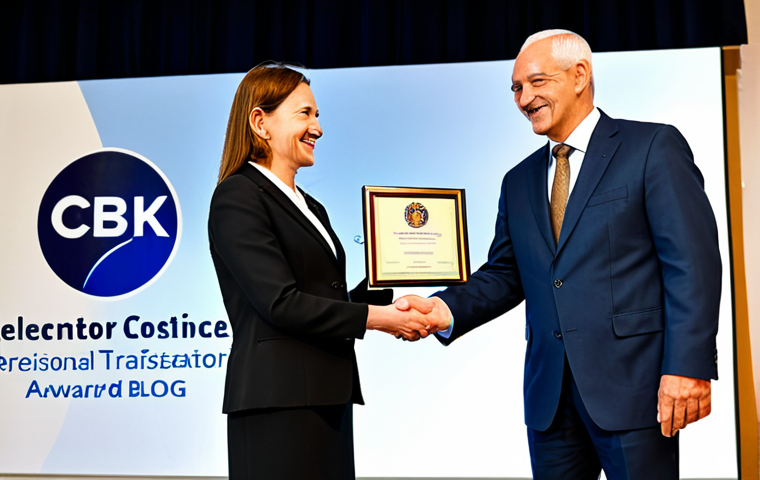Cracking the Chinese Translation and Interpretation Job Market: Your Strategy Starts HereSo, you’re aiming to snag a job in the fascinating world of Chinese translation and interpretation, huh?
It’s a field buzzing with opportunity, especially with the ever-growing global interconnectedness. But let’s be real, landing your dream role requires more than just fluency.
It’s about understanding the current trends, anticipating future demands, and crafting a strategy that makes you stand out from the crowd. I’ve personally seen many talented individuals struggle simply because they didn’t have a clear roadmap.
From understanding the impact of AI on the industry to networking effectively, there’s a lot to consider. To really nail that job search, let’s delve into the key strategies you need.
Let’s find out with precision below!
Okay, here is the blog post draft as per your instructions:
Decoding the Current Landscape: Skills That Command Attention

The translation and interpretation sector isn’t static; it’s a dynamic arena shaped by technological advancements and evolving global dynamics. To truly thrive, you need to identify the skills that employers are actively seeking *right now*.
Think beyond basic fluency. I’m talking about specialized knowledge in areas like legal, medical, or technical translation. I remember when I was first starting out, I thought being bilingual was enough.
Boy, was I wrong! The interpreters who were raking in the gigs had niche expertise and could command higher rates. It’s like being a general practitioner versus a specialist doctor – both are needed, but the specialist is often in higher demand and can charge more.
Another area to consider is proficiency in CAT (Computer-Assisted Translation) tools. Software like Trados Studio or MemoQ are almost ubiquitous in the industry, and knowing how to use them efficiently can dramatically improve your productivity and the consistency of your work.
From personal experience, mastering CAT tools not only made me faster but also opened doors to projects with larger translation agencies that required their use.
1. Master Specialized Domains
* Legal translation, for example, requires not only linguistic skills but also a deep understanding of legal terminology and systems in both source and target languages.
Imagine trying to translate a patent document without knowing the ins and outs of intellectual property law. It’s a recipe for disaster. I once had to translate a contract, and thankfully, I had taken a course on contract law – it saved me from making some serious mistakes.
* Medical translation is another booming field, especially with the increasing globalization of healthcare. From clinical trial reports to patient information leaflets, the demand for accurate and reliable medical translations is huge.
This requires not only linguistic but also medical knowledge.
2. CAT Tool Proficiency is Non-Negotiable
* These tools are not just for big agencies; even freelancers can benefit from them. They help maintain consistency in terminology, manage translation memories, and improve overall efficiency.
I’ve even seen some freelance interpreters using terminology management tools to prepare for complex assignments. * Familiarize yourself with popular CAT tools like Trados Studio, MemoQ, and Across.
Many online courses and tutorials can help you get started. Believe me, it is an investment that pays for itself.
Building Your Online Presence: Showcase Your Expertise
In today’s digital age, your online presence is your resume. It’s how potential clients or employers find you, evaluate your skills, and ultimately decide whether to hire you.
Having a professional website or online portfolio is no longer optional; it’s essential. Think of it as your virtual storefront. It’s where you showcase your best work, highlight your expertise, and provide testimonials from satisfied clients.
I know, building a website can seem daunting, but there are plenty of user-friendly platforms like WordPress or Wix that make it relatively easy. And it doesn’t have to be fancy.
Just a clean, professional-looking site with clear information about your services and qualifications. In fact, I helped a friend of mine create a simple website, and within a month, she landed her first major translation project.
The key is to make it easy for people to find you and see what you can do.
1. Craft a Compelling Online Portfolio
* Showcase your best translation or interpretation projects. Include samples of your work, along with descriptions of the project scope, challenges, and results.
2. Leverage LinkedIn to Connect and Engage
* Update your profile with your skills, experience, and certifications. Join relevant groups and participate in discussions. Share articles and insights related to the translation and interpretation industry.
I’ve found LinkedIn to be a goldmine for networking and finding job opportunities. * Regularly update your LinkedIn profile to reflect your latest skills, experiences, and certifications.
Make sure your profile picture is professional and that your summary clearly articulates your value proposition.
3. Consider a Blog or Vlog to Share Insights
* If you’re passionate about a particular area of translation or interpretation, consider starting a blog or vlog to share your insights and expertise.
This can help you establish yourself as a thought leader in your field and attract potential clients.
Networking: Your Golden Ticket
Networking can often feel like a chore, but in this industry, it’s arguably the most valuable tool in your arsenal. Forget sending out endless resumes into the void.
Think of every conference, workshop, or even casual meet-up as a potential opportunity to connect with someone who can open doors for you. I’ve personally landed some of my most lucrative projects simply by striking up conversations at industry events.
It’s about building genuine relationships and letting people know what you do and what you’re passionate about. Remember, people hire people they like and trust.
So, be yourself, be enthusiastic, and don’t be afraid to put yourself out there.
1. Attend Industry Events and Conferences
* These events are a great way to meet other translators, interpreters, and potential clients. Be prepared to introduce yourself, hand out your business card, and engage in meaningful conversations.
2. Join Professional Organizations
* Organizations like the American Translators Association (ATA) offer networking opportunities, training programs, and certification programs.
3. Virtual Networking is Also Key
* Engage in online forums, social media groups, and webinars. Connect with other professionals in the industry and participate in discussions. Virtual networking can be just as effective as in-person networking, especially in today’s digital age.
Certifications: Validating Your Expertise
In a competitive job market, certifications can be a game-changer. They provide objective validation of your skills and knowledge and can help you stand out from the crowd.
But which certifications are worth pursuing? Well, that depends on your specific goals and area of expertise. For example, if you’re interested in medical translation, you might consider the Certified Medical Interpreter (CMI) or the Certification Commission for Healthcare Interpreters (CCHI) certifications.
If you’re focused on legal translation, the ATA offers certification in specific language pairs. I remember when I got my ATA certification, it instantly boosted my credibility and opened doors to higher-paying projects.
It’s an investment that can pay off in the long run.
1. Research Relevant Certifications
* Look into certifications offered by professional organizations like the American Translators Association (ATA), the National Association of Judiciary Interpreters and Translators (NAJIT), and the Certification Commission for Healthcare Interpreters (CCHI).
2. Weigh the Costs and Benefits

* Consider the cost of the certification exam, the required training, and the potential return on investment. Some certifications are more valuable than others, so do your research.
Mastering the Interview: Showcase Your Value
The interview is your chance to shine and convince the employer that you’re the best candidate for the job. It’s not just about answering questions; it’s about showcasing your skills, experience, and personality.
Preparation is key. Research the company or organization, understand their needs, and anticipate the questions they might ask. Practice your answers, and be ready to provide specific examples of your work.
I remember one interview where I completely bombed because I hadn’t done my homework. I didn’t know anything about the company, and I couldn’t answer basic questions about their services.
It was a painful lesson, but it taught me the importance of preparation. Also, make sure you dress professionally, arrive on time, and maintain eye contact.
First impressions matter.
1. Practice Common Interview Questions
* Be prepared to answer questions about your experience, skills, strengths, and weaknesses. Also, be ready to discuss your rates, availability, and preferred working style.
2. Prepare Questions to Ask the Interviewer
* Asking thoughtful questions shows that you’re engaged and interested in the role. Some good questions to ask include:
* What are the biggest challenges facing the translation/interpretation team?
* What are the opportunities for growth and development in this role? * What is the company culture like?
Rates and Negotiation: Know Your Worth
Knowing your worth and confidently negotiating your rates is crucial for long-term success. Many translators and interpreters undervalue their services, leading to burnout and resentment.
Before you start negotiating, research the market rates for your language pair and specialization. Consider your experience, skills, and the complexity of the project.
Don’t be afraid to ask for what you deserve. Remember, you’re providing a valuable service, and your rates should reflect that.
1. Research Market Rates
* Use online resources like ProZ.com or industry surveys to get an idea of the going rates for your language pair and specialization.
2. Factor in Your Expenses
* Don’t forget to factor in your expenses, such as software licenses, professional development, and marketing costs. Here is an example table to show the differences between types of translation:
| Type of Translation | Description | Common Documents | Key Skills |
|---|---|---|---|
| Legal Translation | Translation of legal documents. | Contracts, patents, court documents. | Legal terminology, attention to detail. |
| Medical Translation | Translation of medical texts. | Clinical trials, patient records, medical device manuals. | Medical terminology, regulatory knowledge. |
| Technical Translation | Translation of technical manuals. | User guides, engineering specifications. | Technical proficiency, precise terminology. |
Continuous Professional Development: Stay Ahead of the Curve
The translation and interpretation industry is constantly evolving, so it’s essential to invest in continuous professional development. This means staying up-to-date with the latest technologies, trends, and best practices.
Attend webinars, take online courses, read industry publications, and participate in workshops. Networking is also a form of professional development, as it allows you to learn from your peers and exchange ideas.
1. Invest in Training and Education
* Take online courses, attend workshops, and pursue advanced degrees to enhance your skills and knowledge.
2. Stay Updated with Industry Trends
* Read industry publications, follow relevant blogs, and attend webinars to stay informed about the latest trends and technologies.
Wrapping Up
Navigating the translation and interpretation landscape requires a blend of technical skills, marketing savvy, and continuous learning. By focusing on specialization, building a strong online presence, and leveraging networking opportunities, you can position yourself for success. Remember, it’s not just about being a good translator or interpreter; it’s about being a savvy businessperson who knows how to market their skills and negotiate their worth.
Embrace lifelong learning, stay curious, and never stop honing your craft. The translation and interpretation industry is full of opportunities for those who are willing to put in the effort and invest in themselves. Good luck!
Handy Tips to Keep in Your Back Pocket
1. Join Professional Associations: Organizations like the American Translators Association (ATA) offer networking opportunities and resources.
2. Utilize Social Media: Platforms like LinkedIn can help you connect with other professionals and potential clients.
3. Attend Industry Events: Conferences and workshops can provide valuable learning and networking opportunities.
4. Consider Freelancing Platforms: Websites like ProZ.com or Upwork can help you find translation and interpretation projects.
5. Offer Value-Added Services: Consider offering services like proofreading, editing, or localization to increase your earning potential.
Key Takeaways
Specialize: Focus on a specific niche like legal, medical, or technical translation to increase your demand.
Online Presence: Build a professional website or online portfolio to showcase your expertise.
Networking: Attend industry events and join professional organizations to build relationships.
Certifications: Pursue relevant certifications to validate your skills and stand out from the crowd.
Negotiate Rates: Know your worth and confidently negotiate your rates based on your experience and skills.
Frequently Asked Questions (FAQ) 📖
Q: What are the most in-demand specializations within Chinese translation and interpretation right now?
A: Okay, so from my experience both as a translator and from what I’ve witnessed firsthand in the industry, technical translation and interpretation are HUGE right now.
Think anything related to STEM fields – engineering, pharmaceuticals, IT, the whole shebang. I’ve seen translators with solid technical backgrounds command higher rates and get snatched up by companies almost immediately.
Legal translation is another one that’s always going to be needed, especially with increasing international business. And let’s not forget localization!
I remember helping a small video game company break into the Chinese market last year; their sales skyrocketed after they had a native speaker adapt their game for that audience.
It really does pay to niche down and specialize.
Q: How important is networking in securing a translation or interpretation job?
A: nd what are some effective networking strategies? A2: Networking? Dude, it’s everything!
Seriously, I landed my first freelance gig at a translation conference just by striking up a conversation with someone during the coffee break. Don’t underestimate the power of human connection.
Join industry associations like the American Translators Association (ATA) – it’s worth the membership fee just for the networking opportunities. Attend conferences, even if you have to hustle to find affordable options.
Online, LinkedIn is your best friend. Connect with other translators and interpreters, engage in relevant groups, and don’t be afraid to reach out to people directly.
Just be genuine, offer value, and don’t go in for the hard sell. It’s about building relationships, not just collecting contacts.
Q: How is
A: I impacting the Chinese translation and interpretation field, and how can I stay competitive in the face of these advancements? A3: Okay, AI’s definitely the elephant in the room.
I’d be lying if I said it wasn’t changing things. But here’s the thing – AI, right now, is really good at the mechanical aspects of translation. What it’s terrible at is nuance, cultural understanding, and context.
So, to stay competitive, you need to focus on those uniquely human skills. I’ve been working on improving my creative translation skills – things like transcreation, where you’re adapting the message rather than literally translating it.
That’s something AI just can’t do well yet. Also, learn how to use AI tools to your advantage. Think of them as assistants, not replacements.
Use them for initial drafts, terminology research, but always, always proofread and refine the output yourself. Embrace the technology, but don’t let it define you.
📚 References
Wikipedia Encyclopedia



